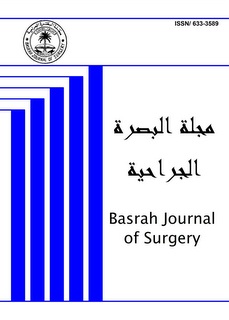Abstract
Kidney transplant considered as alternative treatment in end-stage renal disease. Human leukocyte antigens an important role in graft rejection, donor specific HLA antibodies that measured by panel reactive antibody, lead to increased sensitization. Cytomegalovirus, Epstein-Barr virus, Hepatitis-B, and -C viruses have an association with poor outcome of the transplant. Aim of the study the immunological investigations done before the transplant. The study have carried out in College of Medicine by analyzing the data records for 36 patients undergo kidney transplant in Al-Sadder Teaching Hospital, 5 patients excluded for incomplete data. Data recorded during (2012-2017). HLA matching between recipients and donors including HLA-A, -B, -DR and -DRB1. Presence of PRAs, Hepatitis B virus surface antigen, Hepatitis C virus antibody, Cytomegalovirus IgM and IgG, Epstein-Barr virus IgM and IgG screened in recipients. Out of 31 recipients, 83.9% of were males and 16.1% females. 77.4% of donors and recipients were relatives and 22.6% were not relatives. 22.6% of donors and 25.8% of recipients tested for HLA and only 57.14% showed partially matching within some HLA classes. 9.7% of recipients have PRA. No recipient showed positive results for the presence of HBV sAg and HCV Ab. 6.5% of recipients have CMV IgM, 67.7% have CMV IgG, 9.7% showed positive results for the presence of EBV IgM and 6.5% have EBV IgG. In a conclusion, recipients and donors showed partially matched HLA classes, not all recipients and donors tested for HLA matching. Some recipients have PRA, high percentage of recipients has CMV IgG, and some of them have CMV IgM antibodies. All these factors might effects on the fate of transplant. HLA-DQ have to be tested and screening for the presence of PRA, viral Ag or Abs specific to these viruses in both recipients and donors is recommended.

